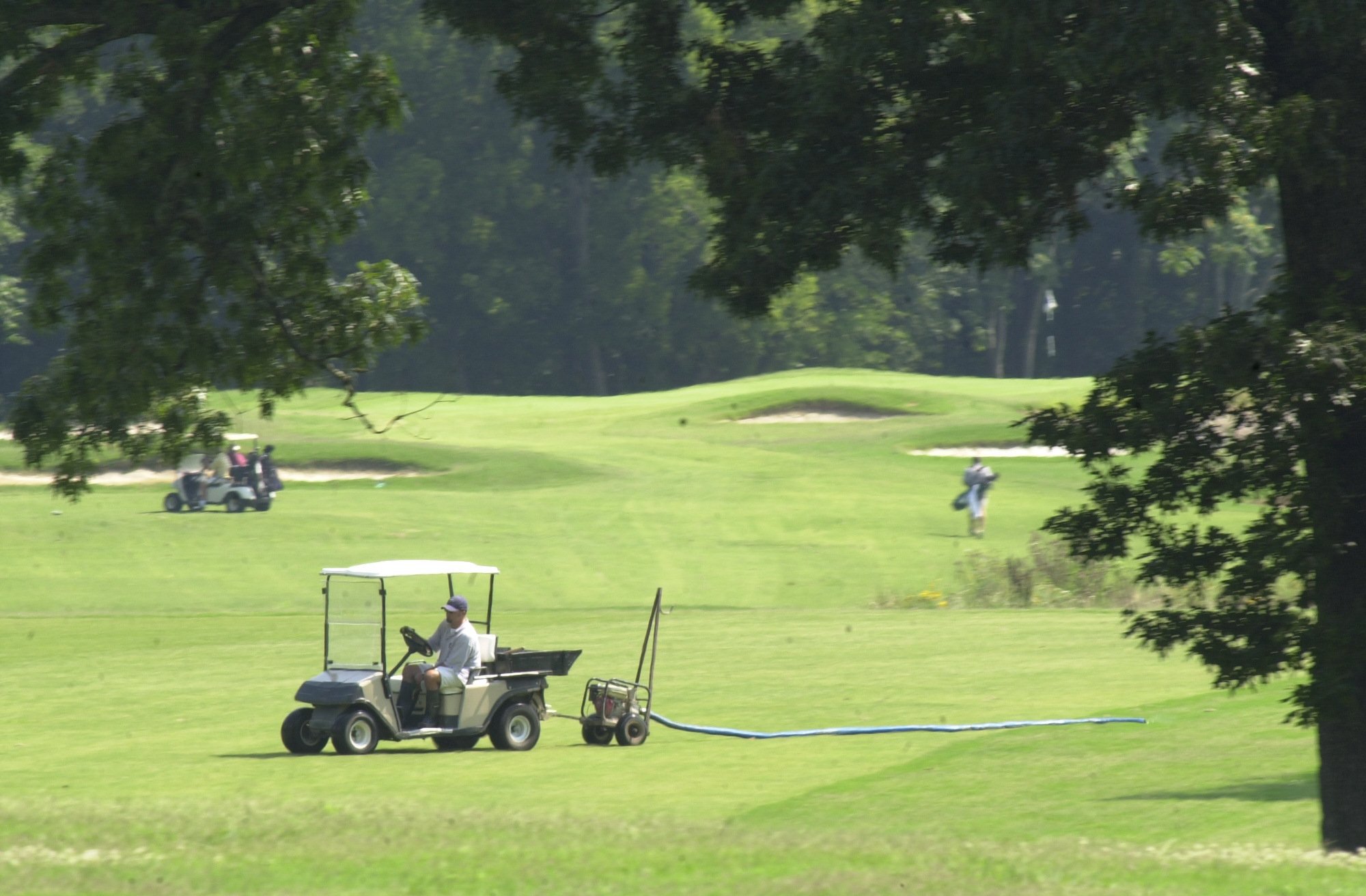State attorney general questions Chattanooga's ale sales
Thursday, January 23, 2014
For more than 20 years, Chattanoogans who enjoy hitting the links at city golf courses have also been able to enjoy throwing back some suds on the premises.
However, a recent opinion by the state attorney general calls into question the legality of local governments enhancing revenue through booze sales.
The opinion says that state law prohibits a municipal corporation - read "city" - and its representatives from selling alcoholic beverages on publicly owned property or obtaining a license to do so.
State law allows only a "person, firm, corporation, partnership or association" to be granted a license to offer alcoholic beverages for sale, and "corporation" only refers to private corporations, not municipal ones, according to the opinion by Attorney General Robert Cooper.
Representatives of Montgomery County asked for the opinion after the Clarksville City Council passed an ordinance in 2012 allowing the sale of beer and liquor at city-owned parks and special events venues as a way to beef up revenue.
Chattanooga's city attorney is reviewing Cooper's opinion and will make a recommendation to the city on the next steps to take, said Lacie Stone, communications director for Chattanooga.
Chattanooga has offered beer for sale at its Brainerd and Brown Acres golf courses since 1991. Cleveland's city-owned golf course, Waterville, also offers beer for sale.
Cleveland City Manager Janice Casteel said she hadn't seen the opinion. She said Cleveland's golf course is outside the city limits and its beer permit was issued by Bradley County.
Cooper's opinion indicates that while cities and their employees can't sell alcoholic beverages on city property, a nonprofit not controlled by the city is allowed to do so if the "property qualifies as a 'convention center,' 'club,' 'restaurant'" or other eligible facility under Tennessee Code.
According to the opinion, a city-owned golf course could qualify as a "club" and receive a license for alcohol sales if it meets the requirements of state law, which define a club as a nonprofit association in operation for at least two years and with at least 100 members paying dues.
It's unclear how this opinion will affect the city-owned Tivoli Theatre and Memorial Auditorium. And it does not directly address the issue of alcohol sales on city or county property leased to a third party, such as the Signal Mountain Golf and Country Club or the Moccasin Bend Golf Course, which is jointly owned by Chattanooga and Hamilton County.
Opinions of the attorney general's office "are not self-enforcing," Leigh Ann Apple Jones, Cooper's chief of staff, said in an email.
Instead, the opinion reflects Cooper's interpretation of the way a state court could rule on the issue if it ever came up, but does not create actual legal requirements.
And some municipalities plan to keep on with business as usual.
Because of longstanding local approval for alcohol sales on park property, and permission from the beer board and city council, Nashville intends to continue the practice until its attorneys tell them otherwise, Tommy Lynch, the director of Nashville Metro Parks, told The Tennessean last week.
It's different in Georgia.
The sale of "retail malt beverages" by "any county or municipality operating a public golf course and offering food or drink" as a part of its operations, is already allowed by Georgia state code, and cities such as Dalton and LaFayette offer beer for sale at their city-owned golf courses.
Other publicly owned facilities in Georgia where sale of alcoholic beverages are allowed under state law include state-run universities and technical institutes, as well as coliseums and municipal or county owned or operated airports.
Contact Alex Harris at aharris@timesfreepress.com or 423-757-6592.

